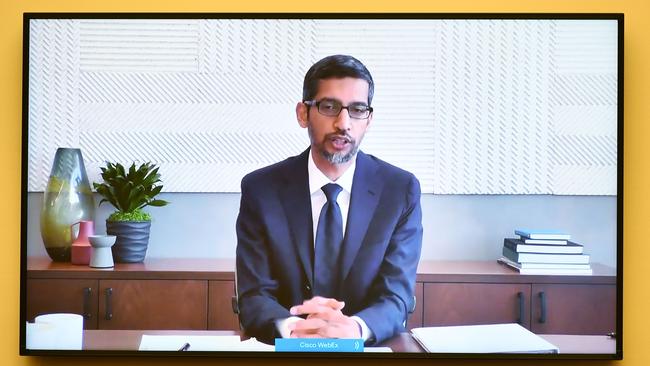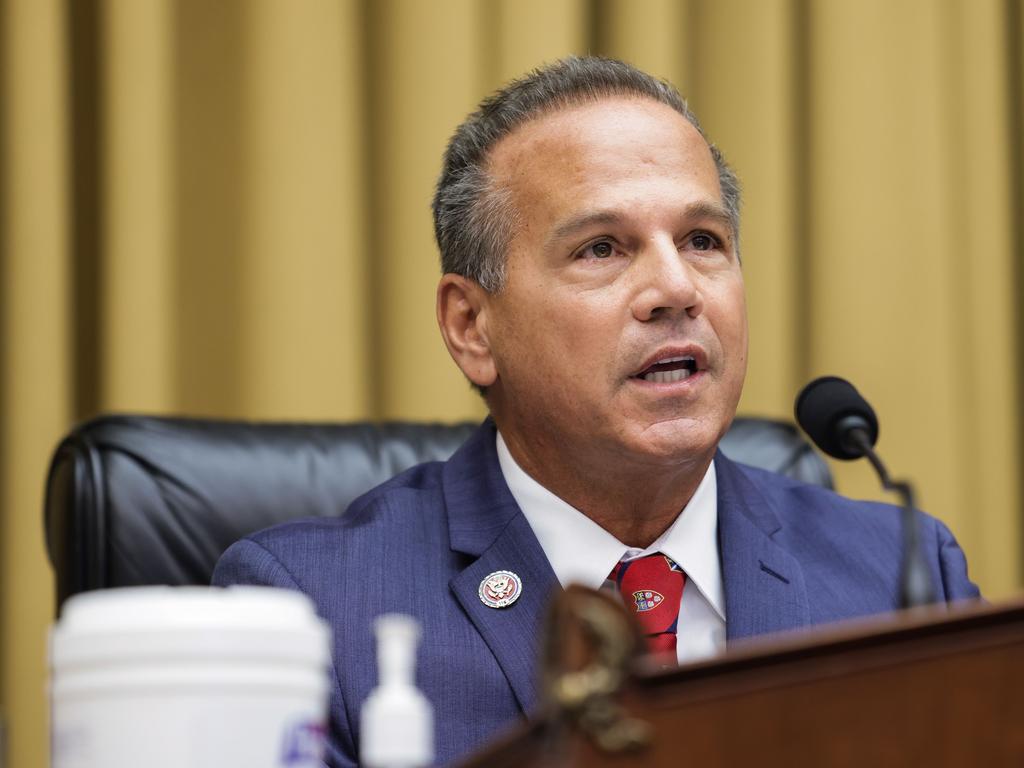Anti-trust hearing puts Big Data in the hot seat
The anti-trust hearing on Capitol Hill zeroed in on a key grey area for politicians and regulators.

The anti-trust hearing on Capitol Hill on Wednesday (Thursday AEST) zeroed in on a key grey area for politicians and regulators probing Big Tech’s power: how the companies use all the data they collect from billions of collective users.
Congressional representatives peppered the chief executives of Alphabet, Facebook, Amazon and Apple with questions about their respective companies’ footprints and allegations of anticompetitive behaviour.
Big Tech’s ability to hoover up information took centre stage in the Democratic-led House of Representatives judiciary committee.
The question representatives grappled with is where to draw the line between mass data collection helping or hurting US consumers.
“These platforms have the incentive and ability to exploit this power,” Representative David Cicilline (Democrat, Rhode Island) said in his opening remarks.
“Each platform uses its control over digital infrastructure to surveil other companies, their growth, business activity and whether they might pose a competitive threat.”
The hearing came as agencies including the Justice Department and Federal Trade Commission push ahead on anti-trust inquiries into the Silicon Valley companies. Many state attorneys-general have launched their own parallel investigations.
Democrats’ questioning on Wednesday implied data would be a key point of the inquiry going forward. Mr Cicilline, who heads a subcommittee on anti-trust issues, pressed Google chief executive Sundar Pichai on whether the search and advertising giant has used the monitoring of Google traffic to identify upstart challengers.
“Just like other businesses, we try to understand trends from data, which we can see, and we use it to improve our products for our users,” Mr Pichai said.
Representative Pramila Jayapal (Democrat, Washington) charged Facebook with using troves of user data to copy competitors’ features. “I view it as our job to understand what people are finding valuable in all of the services they use,” Facebook chief executive Mark Zuckerberg said.
Ms Jayapal later asked Amazon chief executive Jeff Bezos whether the e-commerce giant looked at data from third-party sellers to develop its own competing products for the platform, as The Wall Street Journal reported in April.
“I can’t answer that question yes or no,” Mr Bezos said. “What I can tell you is, we have a policy against using seller-specific data to aid our private-label business. But I can’t guarantee you that that policy has never been violated.”
Apple chief executive Tim Cook similarly batted away accusations the company used its App Store data to unfairly favour certain apps. App development “is so competitive, I would describe it as a street fight for market share in the smartphone business,” he said.
Although critics of the tech giants argue their mass data collection puts outside companies at an unfair disadvantage, there are many benefits for users and customers, said Tim Crawford of strategic advisory firm AVOA.
Mr Crawford, who consults with chief information officers, said that data collection by big-tech companies can trickle down to other enterprises in the form of new tools. He pointed to natural-language processing capabilities developed for Amazon’s cloud-based voice service, Alexa, which eventually benefited Amazon Web Services clients.
“There’s actually value in the size of those companies,” Mr Crawford said. “When it crosses the line to become a little more Big Brother, that’s problematic.”
The Wall Street Journal





To join the conversation, please log in. Don't have an account? Register
Join the conversation, you are commenting as Logout